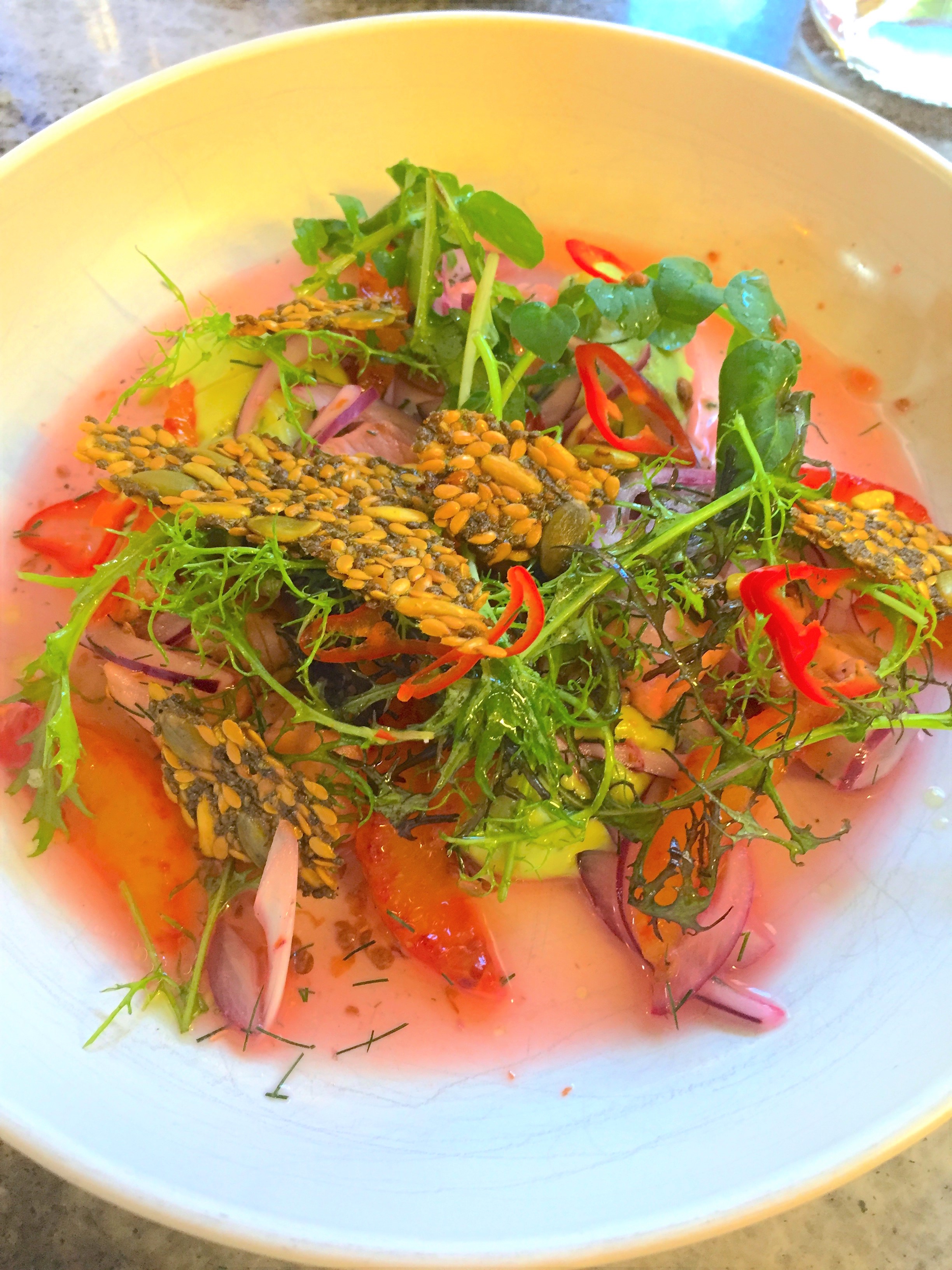Iodine
It’s well known that your body needs iodine to make thyroid hormones. Sounds simple, right?
But life is often not so simple, and iodine is a case in point. Yes, studies have shown that diets that are too low in iodine can aggravate hypothyroidism. But so can diets that are too high in iodine. High intake of iodine might also increase the risk of Hashimoto’s thyroiditis, an autoimmune condition in which your body is basically attacking its own thyroid gland.
I see this problem with a lot of my clients who keep taking iodine when they shouldn’t. Has your doctor told you that you are deficient in iodine? If so, then yes, a little extra iodine—perhaps in the form of a supplement or some seaweed in your diet—will help to maintain proper thyroid function. Just be careful, because I have seen people who take iodine for too long go from being hypothyroid to becoming hyperthyroid.
So unless bloodwork shows you as iodine-deficient, please! Save yourself some money, protect your poor little thyroid, and stop taking iodine supplements. Why spend money to make yourself sick? Your body will let you know if you need more iodine, and if it doesn’t, then using sea salt and enjoying iodine-rich foods should supply you with all the iodine you need.
Low-reactive foods rich in iodine:
Seaweed, cod, scallops, eggs, salmon sashimi, cranberries, and potatoes. (And that is why French fries can be good for both your thyroid and your weight loss! Mmmm.)
Selenium
After iodine, selenium is probably the most important mineral affecting thyroid function. T3 is your thyroid powerhouse, and your body needs selenium to convert T4 into T3. So many of your Metabolism Plan basics and least-reactive foods make the selenium list!
Low-reactive foods rich in selenium:
Chia seeds, sunflower seeds, flax, pumpkin seeds, shiitake mushrooms, chicken, beef, lamb, chicken, mussels, octopus, halibut, and bread. Although other experts often recommend Brazil nuts as a good source of selenium, I have found them to be highly reactive, probably because they absorb massive levels of radium, a naturally occurring source of radiation, as they’re growing.
Zinc
Holy smoke, do I love zinc! The zinc-rich foods on The Metabolism Plan have really boosted my clients’ ability to convert T4 into T3, with terrific results for metabolism, energy, and weight.
Men, here’s a special benefit: Zinc is also great for prostate health. And for both sexes, zinc boosts immune function.
Now, don’t rush right out and buy several bottles of zinc. The right amount of zinc is terrific, but too much can actually suppress thyroid function. Once again, let your body be your guide. Eating the friendly low-reactive foods you are naturally drawn to will eventually ensure that you’re getting just the right amount of zinc for you.
Low-reactive foods rich in zinc:
Pumpkin seeds, beef, lamb, chickpeas, shiitakes, chicken, oysters, and cocoa powder.
Iron
Iron deficiency is common among women—thanks again, monthly cycle! But you men aren’t off the hook because low iron levels are a risk for everyone as we age. Iron deficiency in turn affects our thyroid levels, because insufficient iron stores reduce our thyroid gland’s ability to make hormone. And once again, you can eat your way to health.
Low-reactive foods rich in iron:
Chicken, beef, lamb, haddock, lentils, pumpkin seeds, broccoli, liver, clams, mussels, salmon sashimi , lentils, apricots, almonds, rice, raisins, green leafy vegetables, and potatoes.
Vitamin D
Vitamin D deficiency might increase your risk of autoimmune thyroid disease and is very common among people with thyroid cancer or thyroid nodules. Even if you are consuming enough vitamin D, you might not be absorbing it: If your small intestine isn’t functioning up to par, it can’t absorb all the vitamins you take in. And guess what? Impaired digestion is a hallmark of hypothyroidism. Talk about a vicious cycle! Luckily, the Metabolism Plan, a round of MSM, and a good-quality probiotic with no FOS (fructooligosaccharides) will help your thyroid and your digestion.
Stress can also sap your vitamin D levels by causing an increase of cortisol, a powerful stress hormone. Stress hormones are made from cholesterol, which your body needs to synthesize vitamin D from the sun. So when you are stressed, your body prioritizes the available cholesterol for stress hormones, with not enough left over to help with vitamin D production. A fabulous de-stressing supplement called SAM-e helps greatly on those days it seems like your world is exploding!
Happily, once you are on The Metabolism Plan, your vitamin D levels will bounce back very quickly, often within the month. Many of my clients have had this experience, and I’m betting you will get the same results!
Low-reactive, Plan–friendly foods rich in Vitamin D:
Wild white fish, shiitake mushrooms, cheese, eggs, and organ meats such as liver, heart, and kidney. So break out the chopped liver or pate and boost your vitamin D.
Vitamin B12
Almost half of hypothyroid patients are deficient in this crucial vitamin. And if you are vegan or vegetarian, your risk of deficiency is even greater.
As with vitamin D, your B12 deficiency might be caused by absorption issues. People with Hashimoto’s, celiac, and other autoimmune diseases frequently have inflamed, damaged intestinal tracts, which prevents absorption of B12 and other nutrients. Intestinal issues and inflammation are common among overweight people as well. When you heal your gut on The Metabolism Plan, your absorption capacity will return.
Low-reactive, Plan-friendly foods rich in B12:
Salmon sashimi , cod, lamb scallops, beef, crab, cheese, and eggs


